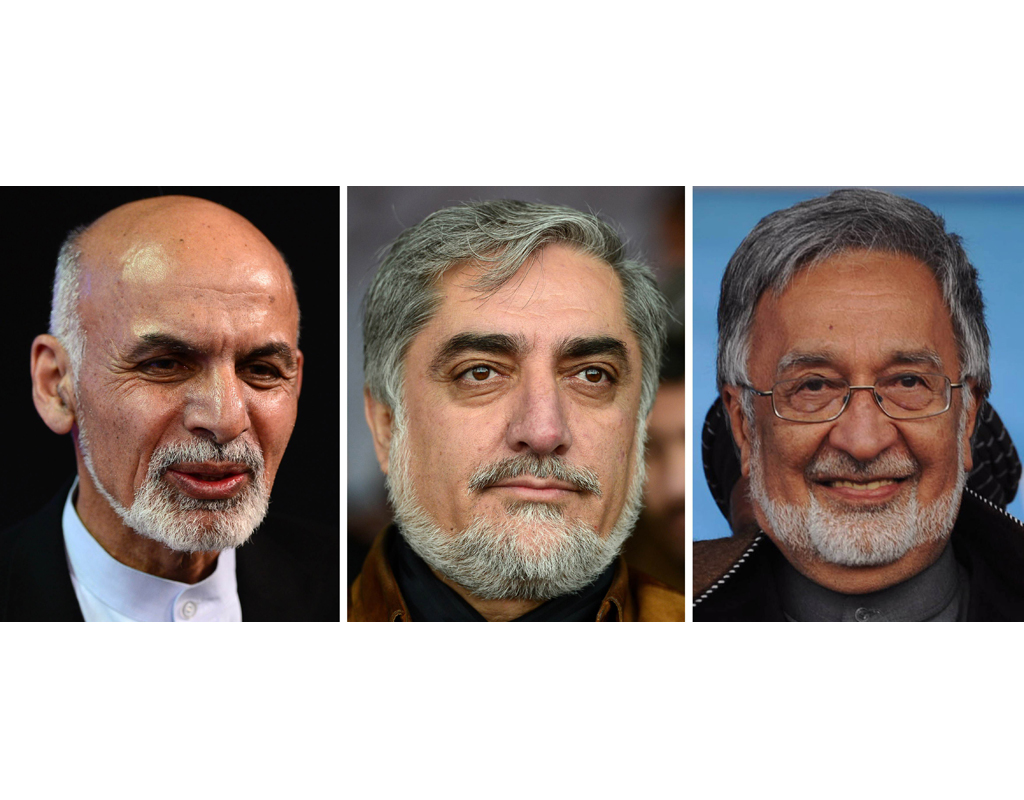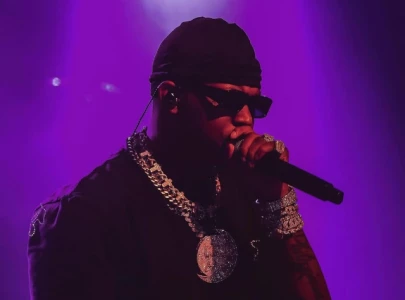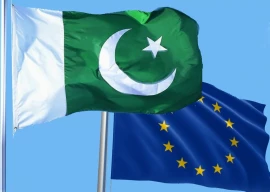
Whoever wins Afghanistan's election will bring a sharp change of style when President Hamid Karzai steps down after 13 years in power and US-led troops end their war against Taliban insurgents.
Abdullah Abdullah and Ashraf Ghani are set to compete in a head-to-head election next month after preliminary results from the first-round vote showed they were the leading two among eight candidates.
Both men are pro-Western, religiously moderate politicians who have played key roles in shaping the country since the fall of the Taliban in 2001.
But they offer voters very different personalities, backgrounds and ethnic loyalties.
Abdullah, 53, is still embittered by the massive vote-rigging that he believes stopped him becoming president in the 2009 election when Karzai retained office, securing a maximum second term.
In 2009, Abdullah came second in the first-round vote and then pulled out of the run-off in disgust, alleging that Karzai's supporters would again try to use fraud to fix the result.
"Abdullah is very professional operator," one diplomat in Kabul told AFP. "But one concern is how would he work with Karzai, who plans to stay active at the highest levels of Afghan politics."
Abdullah, who started off as an eye doctor, was a member of Burhanuddin Rabbani's government during the 1992-1996 civil war, and made a name for himself abroad for his fluent English and courtly manner.
But his formative political years were as the right-hand man to Ahmad Shah Massoud, the charismatic Tajik commander who led resistance to the 1996-2001 Taliban regime.
Due to his closeness to Massoud, much of Abdullah's core support comes from Tajik and other Dari-speaking ethnic groups in the north.
Massoud was killed two days before the 9/11 attacks on the United States, leaving Abdullah fearing that the anti-Taliban resistance would collapse.
But US reaction to the strikes on New York and Washington transformed the landscape overnight, with the Taliban soon ousted and Abdullah emerging as foreign minister in the new government under Karzai.
Of mixed ethnic parentage, he has long taken a strong stance promoting reconciliation between Tajiks and their tradition rivals the Pashtuns, the largest ethnic group in Afghanistan.
In the heady days after Taliban fell in late 2001, Ashraf Ghani was also in the thick of the action, advising on technical aspects of setting up the interim government and advocating for more international support.
Ghani, now 64, was an academic and economist who left Afghanistan in 1977 and only returned 24 years later.
He took a degree in anthropology from the American University in Beirut and studied at New York's Columbia University, before teaching at several universities during the Soviet occupation of Afghanistan in the 1980s.
He worked with the World Bank from 1991, and returned to Kabul as a senior UN special advisor soon after Taliban were routed.
He was influential in designing the roadmap to the first elections in 2004, and became a powerful finance minister under President Karzai, campaigning hard against burgeoning corruption.
Renowned for his energy, he introduced a new currency, set up a tax system, encouraged wealthy expat Afghans to return home, and cajoled donors as the country emerged from the days of Taliban rule.
But he also demonstrated the divisive character that has earned him a reputation that still dogs him today.
"His explosions of bad temper and displays of arrogance with fellow Afghans and Westerners were all too frequent and soon made him a loathed figure," wrote veteran author Ahmed Rashid, who has known him for 25 years.
After performing poorly in the last election, Ghani shocked many Afghans this time by choosing as a running mate General Abdul Rashid Dostum, a Uzbek warlord accused of multiple human rights abuses.
But Ghani lit up the campaign trail with a relentless series of fiery speeches delivered at rallies around the country.
He is Pashtun and - like Abdullah - has stressed the importance of unifying Afghanistan's disparate ethnic groups.
While both potential presidents have tricky relations with Karzai, they have good ties with Washington and say they would sign a deal to allow some US troops to stay after this year on a training and counter-terrorism mission.
The exact date of the run-off vote is still to be confirmed but is likely to be in mid-June.

1735040357-0/Untitled-(100)1735040357-0-165x106.webp)



1735035660-0/sidra--(8)1735035660-0-270x192.webp)
1735026397-0/Untitled-design-(16)1735026397-0-270x192.webp)


1735033026-0/sidra--(7)1735033026-0-270x192.webp)
1735030361-0/sidra--(1)1735030361-0-270x192.webp)
1734899716-0/image-(15)1734899716-0-270x192.webp)
1732012115-0/Untitled-design-(14)1732012115-0-270x192.webp)










COMMENTS
Comments are moderated and generally will be posted if they are on-topic and not abusive.
For more information, please see our Comments FAQ